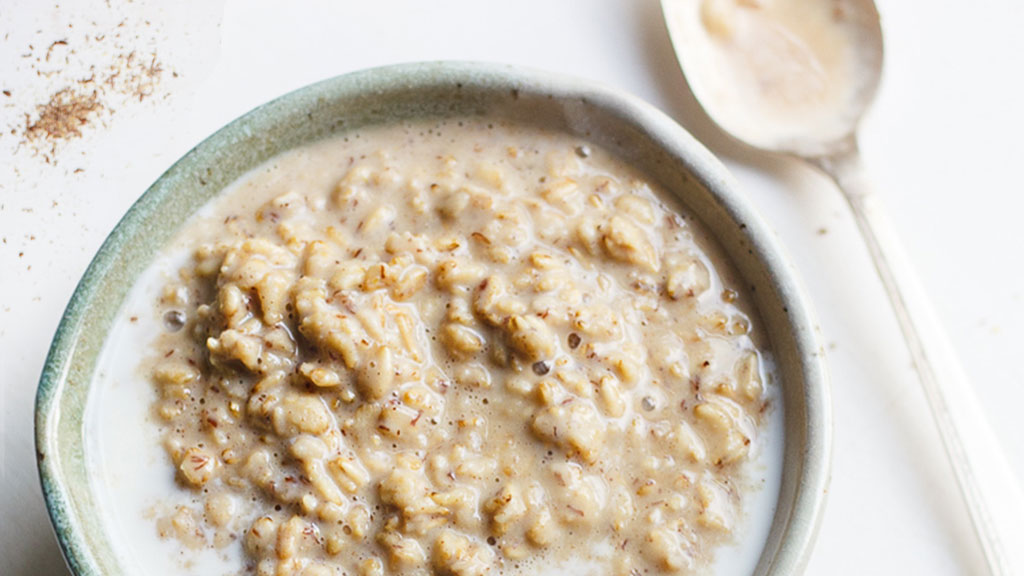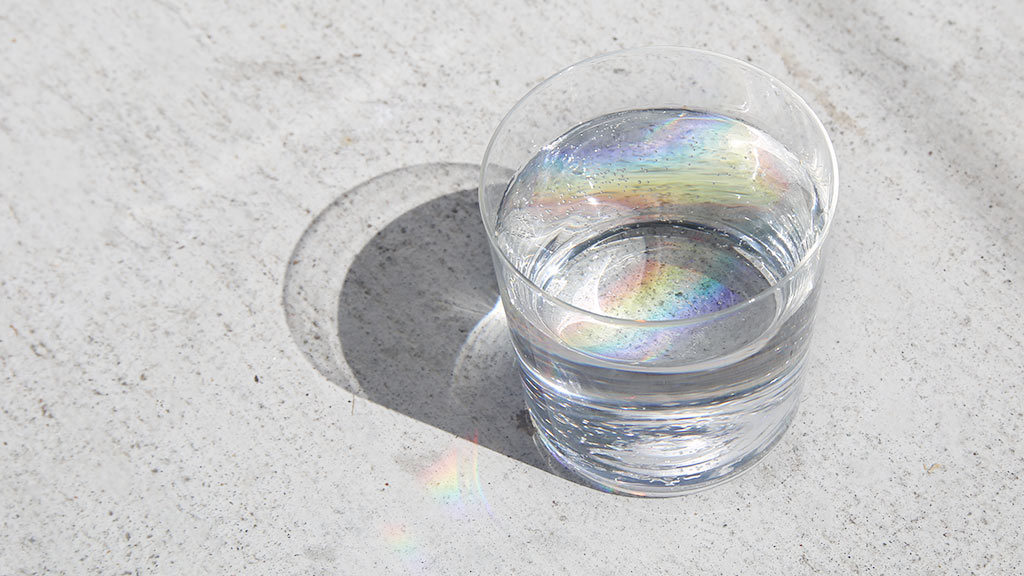Nourish
What’s the best dairy-free milk for you?
If you’re doing B3 ALL IN, you’re cutting out dairy this month—but that doesn’t mean milk is off-limits! It’s simply a matter of finding the dairy-free alternative that best suits your body’s needs. To help you maximize nutrition and limit added sugar and preservatives in your Smoothies, Chia Seed Parfaits, Overnight Oats, and Morning Muesli, here’s what you need to know when heading to the milk aisle.
Hemp, Flax, and Pea (Yes, Pea!) Milks
Although these are not yet as readily available as other dairy-free milks, they’re our go-to milk alternatives because they naturally include good-for-you omega 3 and 6 fatty acids and tend to be easier to digest than other alternative milks. Most hemp and flax milks are fortified with calcium and Vitamin D, and some even contain added protein for a more balanced drink. And if you haven’t tried it yet, pick up a bottle of pea milk, which is made from split peas without nuts, soy, gluten, or GMOs—a great choice for people with allergies or intolerances. It has more calcium and iron than cow’s milk and may also be fortified with healthful fatty acids.
Nut Milks
Generally speaking, nut milks—including almond, cashew, and coconut—lose most of their nutrients during processing, so they wind up being more like flavored water than milk. Some nutrients, like calcium and vitamin D, are added back in, but there may not be any protein or healthy fats. If you like nut milks, try an unsweetened variety with added plant protein for more nutrition per cup. And if you love almond milk but worry about the added ingredients—even in the organic versions—you can always make your own. It’s surprisingly simple: In a high-speed blender, blend 1 cup of whole, raw almonds with 4 cups of water. Strain through a cheesecloth, and voila—almond milk!
Soy Milk
Studies on the consumption of soy have shown a wealth of conflicting findings, so we don’t include soy products in any of our B3 recipes. However, if you don’t have a soy allergy or sensitivity, drinking soy milk occasionally shouldn’t affect you in a negative way. On the plus side, it is one of the few alternative milks that naturally contains as much protein as cow’s milk. Most varieties are fortified with calcium, making it an acceptable alternative if you tolerate it well and don’t eat many other soy products in your diet. Opt for organic unsweetened plain soy milk since conventional soy almost always contains GMOs.
Keep in mind that if you find that you don’t digest a certain type or brand of milk well, it might be due to one of the thickeners or stabilizers used to give the product a better mouth-feel, rather than the main ingredient. Look for a brand made without carrageenan (which will soon be removed from all organic products based on its questionable processing), like hemp milk from Living Harvest, almond milk from Califia, pea milk from Ripple, and flax milk from Good Karma.
If you’re doing B3 ALL IN, you’re cutting out dairy this month—but that doesn’t mean milk is off-limits! It’s simply a matter of finding the dairy-free alternative that best suits your body’s needs. To help you maximize nutrition and limit added sugar and preservatives in your Smoothies, Chia Seed Parfaits, Overnight Oats, and Morning Muesli, here’s what you need to know when heading to the milk aisle.
Hemp, Flax, and Pea (Yes, Pea!) Milks
Although these are not yet as readily available as other dairy-free milks, they’re our go-to milk alternatives because they naturally include good-for-you omega 3 and 6 fatty acids and tend to be easier to digest than other alternative milks. Most hemp and flax milks are fortified with calcium and Vitamin D, and some even contain added protein for a more balanced drink. And if you haven’t tried it yet, pick up a bottle of pea milk, which is made from split peas without nuts, soy, gluten, or GMOs—a great choice for people with allergies or intolerances. It has more calcium and iron than cow’s milk and may also be fortified with healthful fatty acids.
Nut Milks
Generally speaking, nut milks—including almond, cashew, and coconut—lose most of their nutrients during processing, so they wind up being more like flavored water than milk. Some nutrients, like calcium and vitamin D, are added back in, but there may not be any protein or healthy fats. If you like nut milks, try an unsweetened variety with added plant protein for more nutrition per cup. And if you love almond milk but worry about the added ingredients—even in the organic versions—you can always make your own. It’s surprisingly simple: In a high-speed blender, blend 1 cup of whole, raw almonds with 4 cups of water. Strain through a cheesecloth, and voila—almond milk!
Soy Milk
Studies on the consumption of soy have shown a wealth of conflicting findings, so we don’t include soy products in any of our B3 recipes. However, if you don’t have a soy allergy or sensitivity, drinking soy milk occasionally shouldn’t affect you in a negative way. On the plus side, it is one of the few alternative milks that naturally contains as much protein as cow’s milk. Most varieties are fortified with calcium, making it an acceptable alternative if you tolerate it well and don’t eat many other soy products in your diet. Opt for organic unsweetened plain soy milk since conventional soy almost always contains GMOs.
Keep in mind that if you find that you don’t digest a certain type or brand of milk well, it might be due to one of the thickeners or stabilizers used to give the product a better mouth-feel, rather than the main ingredient. Look for a brand made without carrageenan (which will soon be removed from all organic products based on its questionable processing), like hemp milk from Living Harvest, almond milk from Califia, pea milk from Ripple, and flax milk from Good Karma.










11 people have left a comment. Join the conversation!
View Comments